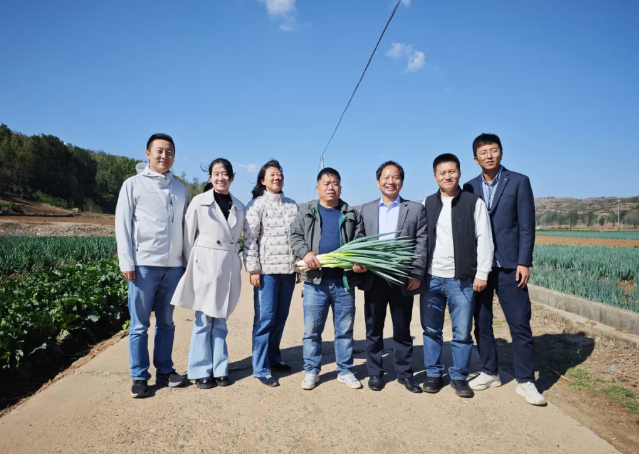 In 2024, marking the 20th anniversary of the "One College Student Per Village" Programme (hereinafter referred to as "the Programme") launched by the Ministry of Education, the Open University of China (OUC) has assembled the "OUC Journey" Press Team to conduct extensive field research in Henan, Hainan, and Shanxi.
In 2024, marking the 20th anniversary of the "One College Student Per Village" Programme (hereinafter referred to as "the Programme") launched by the Ministry of Education, the Open University of China (OUC) has assembled the "OUC Journey" Press Team to conduct extensive field research in Henan, Hainan, and Shanxi.
This press team includes representatives from six media outlets: People's Daily, China Central Television, China Education Television, Farmers’ Daily, CPPCC Daily, and E-Learning. The journalists have delved into primary-level communities, engaging in face-to-face dialogues with rural students to uncover exemplary educational practices and to observe the profound transformations and dynamic vitality that the Programme has injected into the development of new rural communities.
In 2004, the MOE initiated the Programme, which has been meticulously organised and executed by the OUC and its educational system. Over the past two decades, especially following the 18th National Congress of the Communist Party of China (CPC), the OUC has harnessed its systemic advantages to cultivate a significant pool of local rural talent through modern distance education and information technology, offering vital human resource support for rural revitalisation. As of December 2024, the Programme has reached across 29 provinces (autonomous regions and municipalities), enrolling a total of 1.157 million students and graduating 815,000 university students for rural areas.
Henan Open University:
Tilling and Thriving: Science and Education in Henan's Agriculture

From 21 to 24 October, the "OUC Journey" Press Team visited Henan Province, known as the "Granary of Central China". In the lush green fields of scallions, Zhu Delin, a student of the 2021 Class of Administrative Management (Rural Management) under the Programme, narrated the inspiring tale of Zhuyuangou Village’s journey to prosperity. Once a small village dependent on traditional farming with low yields and minimal added value, it has now embarked on a new chapter of “scallions + tobacco leaves” specialised cultivation under the leadership of Zhu Delin, the village Party Branch secretary. By leveraging online livestreaming, the village has expanded its sales channels. Today, the village reports an output value exceeding 10,000 yuan per mu (1 mu equals 0.0667 hectares), with villagers earning nearly 20,000 yuan per capita annually and the village's collective annual income surpassing 300,000 yuan. Each household is now experiencing a blissful new life. In the winter of 2020, amidst Wuhan's COVID-19 lockdown, Zhu Delin led the villagers to manually harvest 100,000 jin (1 jin equals 0.5 kilogrammes) of scallions from the frozen soil to support Wuhan. Their heartwarming donation captured the nation's attention online, and the village's “Heroic Scallions” became famous.
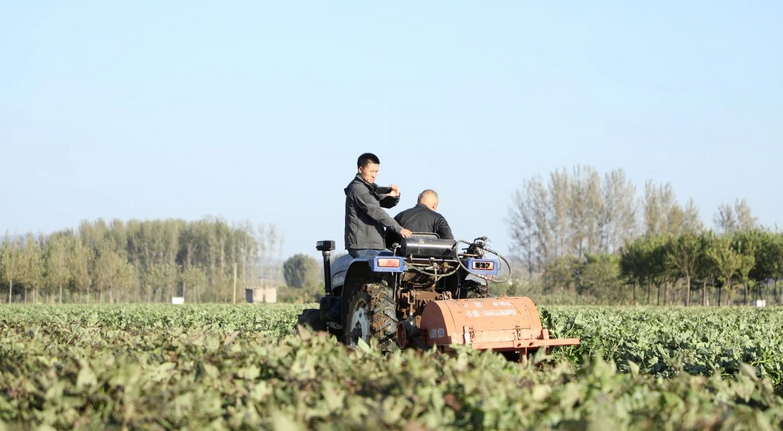
In another field blanketed with sweet potato vines, Zhang Zuoshuai is busily preparing for the imminent harvest. Since enrolling in the Business Administration (Township Enterprise Management) major under the Programme in 2019, he has been mentored by open university instructors. Under their guidance, Zhang Zuoshuai's enterprise, Luoyang Jinshuwang Agricultural Technology Co., Ltd., has evolved into a comprehensive full-industry-chain operation, including sweet potato cultivation, processing, sales, and research. The company now boasts an annual output value of over 10 million yuan and has spurred the cultivation of over 20,000 mu of sweet potatoes among residents in 16 surrounding townships. This initiative has played a crucial role in boosting the income of more than 1,500 impoverished households, aiding them in their journey towards prosperity.
Zhao Jihong, secretary of the Party Committee of Henan Open University (OU), detailed that the institution has remained committed to its educational mission of serving primary-level communities, rural areas, and societal development. By leveraging its extensive educational network and information technology advantages, Henan OU has persistently promoted the rural revitalisation strategy and successfully established a new paradigm for nurturing talent in rural revitalization. The university has developed the Rural Revitalisation Science and Technology Service Team, two “Three Rural Issues” high-quality resource databases (one for teaching resources and the other for expert talent), the Henan Rural Revitalisation Online Academy's Smart Education Platform, the Rural Revitalization Lecture Series, and multiple practical training bases. Actively exploring a “new model of digital rural revitalisation,” Henan OU has cultivated over 50,000 local talented people who are “retained, applicable, and effective,” thereby infusing new dynamism into rural prosperity.
Hainan Open University:
Building Dreams on Hainan, the Coconut Island: Outstanding New Farmers Charting a Promising Future
From 11 to 17 November, the press team ventured to Hainan to investigate the exemplary outcomes of the Programme at Hainan Open University (OU). In the tea gardens of Yacha Township, within Baisha Li Autonomous County, they encountered Fu Xiaofang, a recipient of the National March 8th Red Banner Award and a 2019 enrolee in the Modern Agricultural Economic Management major at Baisha under the Programme. Fu Xiaofang reflected with gratitude that the initiative not only endowed her with specialised knowledge but also constructed a platform for exchange, facilitating the sharing of resources and mutual business assistance. Leveraging the organic tea industry's growth, she successfully forged a path of industrial poverty alleviation, aiding 1,211 registered impoverished households in escaping poverty and instigating a trend of white tea cultivation across 6,000 mu of tea gardens in Hainan.
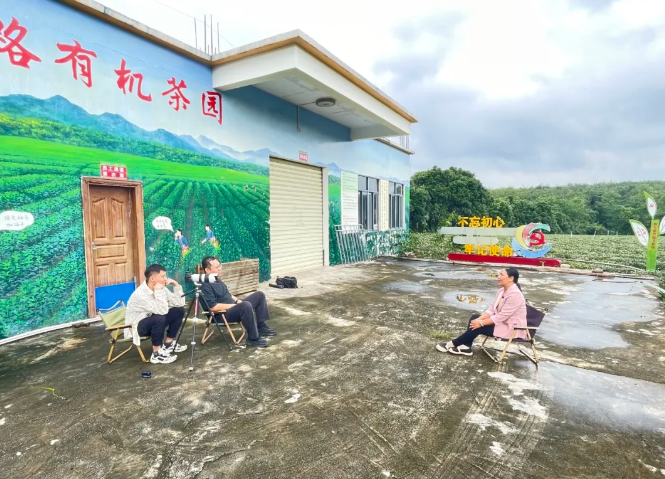
Huang Liping, a 2010 graduate of the Rural Administrative Management major under the Programme, currently holds the position of deputy head of Wenluo Township and secretary of the Wuxing Village Party Branch in Lingshui Li Autonomous County, Hainan Province. Since her appointment, she has been instrumental in driving Wuxing Village's poverty alleviation efforts and achieving the removal of its impoverished status. Huang Liping believes that for a village to overcome poverty, industry development is essential. Under her leadership, Wuxing Village has pioneered an innovative poverty alleviation model that integrates 'Party Branch + Cooperative + Impoverished Households,' focusing on distinctive industries such as mangoes and five-black chickens as the foundation for rural revitalisation.
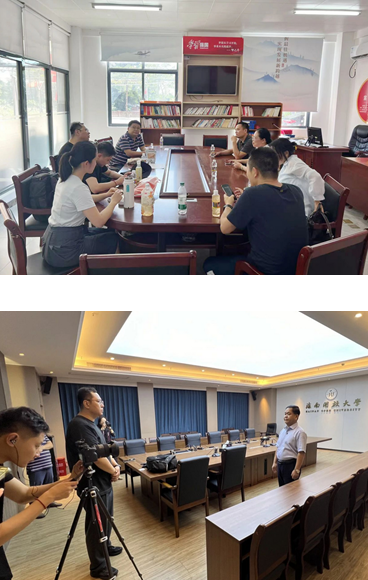
Zhan Xingwen, a member of the Party Committee and vice president of Hainan OU, reported that over the past 20 years, more than 19,000 rural Party members, officials, and exemplary farmers have studied at Hainan OU through the Programme. Among these graduates, 54% have become dual leaders in the development of primary-level rural organisations and in fostering the wealth of farmers in Hainan Province. The Programme has also nurtured a significant number of distinguished individuals, including delegates to the 19th and 20th National Congresses of the CPC, as well as deputies to the National People's Congress.
Shanxi Open University:
Promoting Learning in Shanxi: Virtuous Talent Fostering Hometown Prosperity
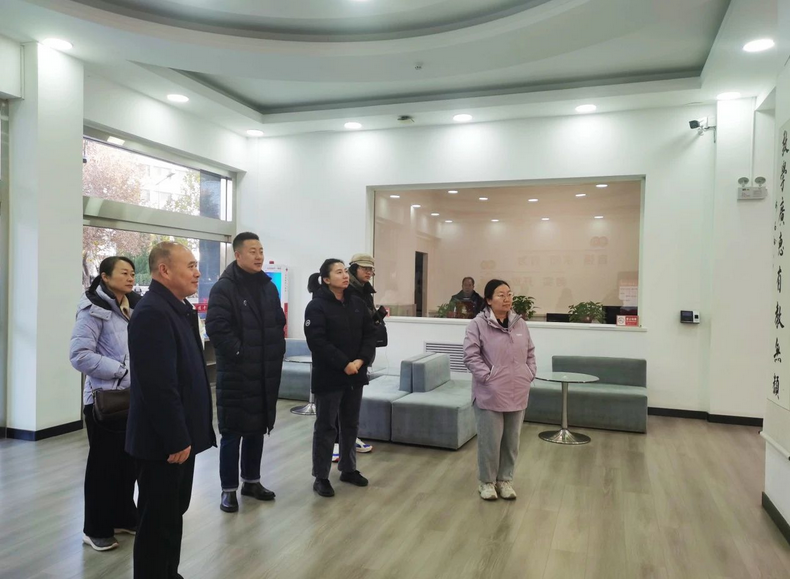
From 25 to 28 November, the press team visited Shanxi. In Gaoping City, Shanxi Province, they learned about Shen Yongsheng, the Party Branch secretary of Goubei Village in Dongchengjie Sub-District and chairman of Xunmeng Tourism Development Co., Ltd. In 2018, Shen became a student in the Modern Agricultural Economic Management major at Jincheng Open University (OU). He applied the national 'Three Transformations Policy' — converting resources into assets, cash into stock, and farmers into shareholders — to revitalise Goubei Village's land. By repurposing idle cave dwellings and homesteads, he vigorously developed rural tourism, addressing local employment and leading villagers towards wealth. Shen generously shared this innovative experience with his peers at the open university, and Goubei Village was designated as one of the first rural revitalisation teaching practice bases of Jincheng OU. Under the meticulous guidance of university instructors, Shen distilled his dynamic practice of leveraging tourism for rural revitalisation into a model that is both replicable and scalable. The “Xunmeng Goubei” Rural Tourism and Cultural Town Project was honoured with the third prize in the 2021 MOE’s “One College Student Per Village” Programme for outstanding student innovation and entrepreneurship cases. Shen was also consecutively recognised as an “Outstanding Graduate” by Shanxi OU and Jincheng OU.
In Hejin City, Shanxi Province, the press team learned about Xue Min, a deputy to the People's Congress of Yuncheng City and the Party Branch secretary and chief of Xiwei Village Committee, Fancun Township. Xue Min graduated from the OUC with a degree in Administrative Management in the spring of 2021 and continued his studies in the undergraduate programme of Rural Regional Development a year later. He openly stated, “My studies at the OUC have further liberated my thinking and renewed my perspectives.” After taking office as the village chief, Xue Min actively advanced the construction of residential buildings, a convenience restaurant, a service centre, and an activity room for the elderly. He initiated public welfare projects such as road paving, the renovation of primary school buildings, and the construction of drainage ditches, significantly enhancing the rural living and production environment. Since 2022, he has led the village's participation in the “Cultivators' Revitalisation Plan” and employed digital tools like the “Village Affairs Management Platform” to bolster rural governance. Thanks to digital innovation, Xiwei Village was successfully listed in the third batch of National Rural Governance Model Villages and has garnered multiple honours, including the Model Village for Peaceful Shanxi Construction, Civilised Village of Yuncheng City, “Five Red Banners” Creation Demonstration Village (covering exemplary Party building, economic prosperity, quality living environments, social etiquette and civility, and effective governance), and Advanced Primary-Level Party Organisation of Yuncheng City.
Reflections of the Journalists:
The Prorgamme Benefits the People and Promotes Equity
The “OUC Journey” was enriching and insightful. The press team gained a profound appreciation for the OUC's exceptional commitment to primary-level rural development and its efforts to advance educational equity. The university's educational philosophy, which is rooted in serving rural communities and farmers, has made a deep and lasting impact on the journalists.
Wu Yue, a reporter from People's Daily, said, "In Gaoping City and Hejin City, Shanxi Province, we had the opportunity to interview two participants of the Programme. We observed their learning environments and followed them through the streets and alleys of their villages. The interplay between study desks and the fields, between academic study and practical application, created vivid scenes. Listening to the participants share how they have benefited from their studies, I truly felt the tangible impact of the Programme.”
Zou Dezhi, a reporter from China Education Television, said, "The Programme fully leverages the OUC's educational system, which is accessible 'anytime, anywhere, to anyone,' providing support for students in their studies, practical training, and other aspects. It has truly cultivated a group of practical talent in rural areas who are able to stay and contribute effectively.”
Zheng Shangruo, a reporter from Farmers' Daily, said, "This interview left a deep impression on me. As a university without walls, the OUC has brought tangible benefits top primary-level officials and the public through its operational advantages. The Programme has not only fulfilled their dreams of education but also provided them with university diplomas they once thought unattainable. It has broadened their horizons, increased their knowledge, and enhanced their abilities, giving them more opportunities in life. I hope the Programme continues to thrive and benefit more farmers in rural communities.
By Wu Huimin, Xue Han, and Du Ziyi, OUC